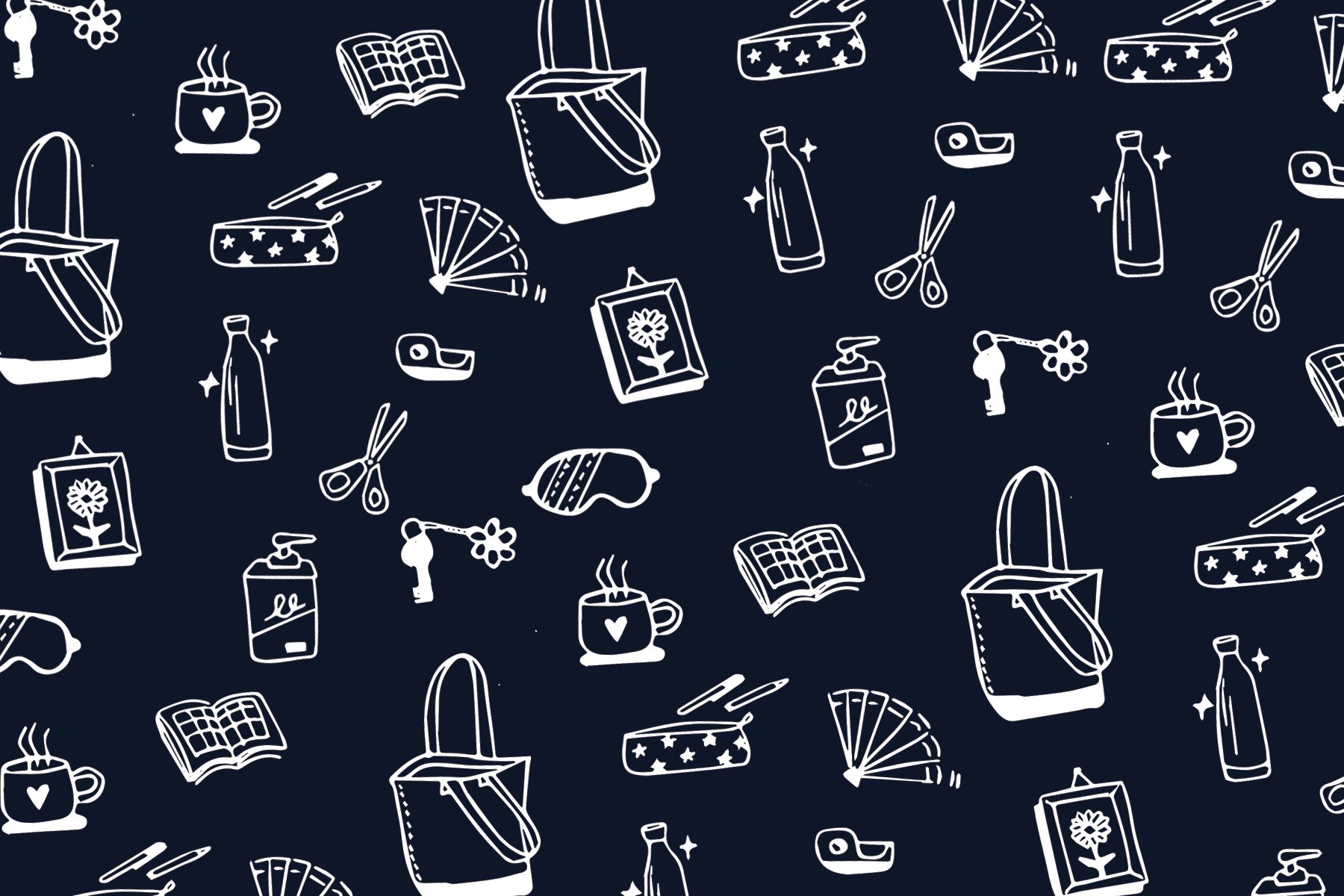Summer is always the time of year when I rigorously clean my room, searching for any item that can be donated or thrown away. It’s usually the time when I reflect on my schoolwork from prior months, deciding which papers to keep and which to recycle. I feel relieved to pack trash bag after trash bag, each filled to the brim with unnecessary items that have littered my room for so long. By leaving behind this clutter, I feel like a burden has been lifted from my shoulders and I’m ready for the upcoming year and its onslaught of papers and items that’ll inevitably find its way into another corner of my room, collecting dust.
Minimalism has consistently gained popularity over recent years, but it is even more relevant now as students are staying inside during the current pandemic. Our consumerist culture promotes a non-minimalist lifestyle, making it easy to overwhelm ourselves with frivolous purchases, and transitioning to minimalism is often pointed to as the solution. By only keeping the bare necessities and eliminating other distractions, minimalism brings peace, and it saves our wallets too.
I would agree that I am against reckless spending, especially now. The average American consumer spends $5,400 every year on impulse purchases, most of which is food or clothing. However, minimalism goes beyond eschewing future purchases; it includes getting rid of unnecessary items one currently owns. And for this reason, I would argue that I am against decluttering simply for a clean slate. There’s a lot of value in keeping objects you already have, or at least, being extremely selective with what you choose to get rid of, because these objects often hold old memories.
In high school, I often saw videos of students throwing all their schoolwork in the hallways in a “paper toss” at the end of the year, or worse yet, burning notebooks, binders and homework in bonfires. These spur-of-the-moment actions are easy to do without considering the consequences, because once an item is thrown away, it can’t be recovered. Looking back, I sometimes regret my habit of throwing as much stuff away as possible without weighing the time and money that I invested into these objects.
Marie Kondo, best-selling author and expert on tidying, has a similar philosophy. She states that KonMari — her method of keeping items that spark joy — is not minimalism. As Kondo explains, “I thought the goal [of tidying] was to get rid of as many things as possible.” But instead, “tidying is about what you want to keep in your life, not what you want to eliminate.” By shifting your mindset from a minimalist one, in which you try to find anything that you don’t consistently use or will use anymore, to that of a non-minimalist one, in which you keep any items that are important, you lead yourself toward a more fulfilling life without regrets.
However, there are many warranted concerns of a non-minimalist lifestyle. Many just don’t have the physical space in their homes to accommodate all of their belongings. At some point, one has to start prioritizing what deserves to be kept and what can be thrown away. A non-minimalist mindset can also turn into hoarding, which can lead to greater stress and anxiety. Famous writers, like Maya Angelou, valued the uninterrupted environment so much that she would often rent a hotel room devoid of any decor to focus on the creative process.
The discretion is up to you. It’s unrealistic to keep everything if it starts to interfere with a productive environment at home. But if there is even the smallest doubt that an object, no matter how old or how unused, might bring back a memory, then you should keep it. These are items that are irreplaceable because they’re unique to you.
Another factor that makes minimalism so attractive is the Digital Revolution, which has decreased the necessity of physical souvenirs when they can be stored online. However, digital photos, for example, can be easily lost in the cloud, but their physical counterparts demand to be seen at some point, as long as they’re in your house. Maybe down the line in a few years, when you decide to replace a cabinet or move out, these keepsakes will pop up and evoke a distinct memory in a way that isn’t possible with digital photos.
These mementos are often items you wouldn’t think much of at first, which can seem counterintuitive. After all, what’s the point in keeping items that aren’t valuable? Items themselves might not be extravagant, but they can still serve as powerful cues for memories.
In a study done by psychologists Gregory Jones and Maryanne Martin, participants were asked the following: “If you could save one object from a fire, what would you save?” What the two found was that respondents chose items that “elicit memories.” Oftentimes, these items are quite mundane compared to more lavish items in the house; the psychologists reported that “the financial or social importance of an object was outweighed by the importance of its memory link.”
For many people, these are items that one has inherited from family and friends, or they are objects that someone has kept for a long time. However, the common thread is that any item that has been in someone’s possession for a long period automatically becomes an object that evokes memories, just by virtue of time. There is a benefit to keeping items because one can always revisit the dilemma of keeping or throwing something away at a later time. What one cannot do is recover that worn sweater or stained journal that was thrown away.
I can’t say for certain which objects you should keep, because everyone associates memories with different items. For me, it’s classwork, books, any souvenirs from trips and even the occasional receipt. For someone else, it could be anything, even the most nonessential thing. A non-minimalist lifestyle could, therefore, be something to consider when going through your belongings, and it doesn’t have to come at the expense of tidiness.

















